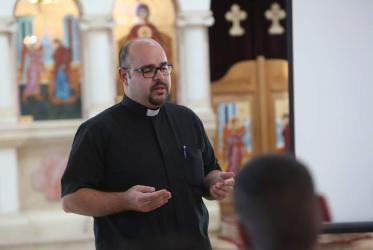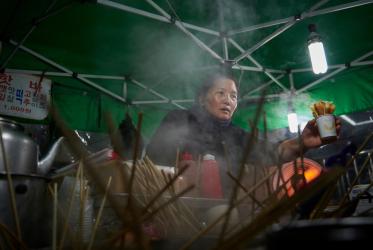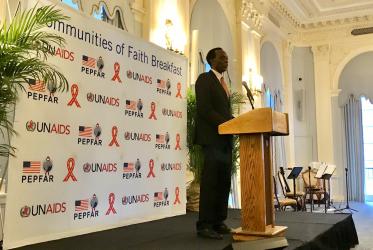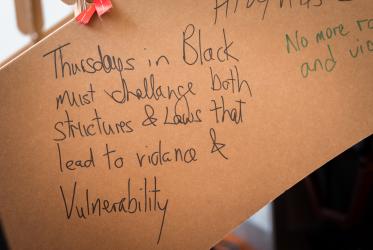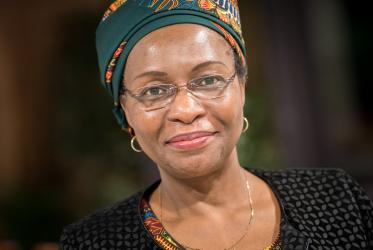Displaying 41 - 60 of 155
“Olive trees are holy signs of peace, older than anyone”
22 October 2020
Freedom of religion rooted in justice
06 March 2020
South Africans draw hope despite recurring challenges
16 December 2019
The cry of the Papuans in Indonesia
14 November 2019
Churches in southern Africa stand against violence, xenophobia
10 October 2019
When you strike the women, you strike a rock
18 September 2019
Dr Saïd Ailabouni: God is on the side of rejected, oppressed, occupied
12 September 2019
Rev. Chris Ferguson: “Wake up to how this world is”
11 September 2019
‘European humanitarian corridor’ proposed
02 May 2019
Dr Cecile De Sweemer, the doer of God
30 November 2018
